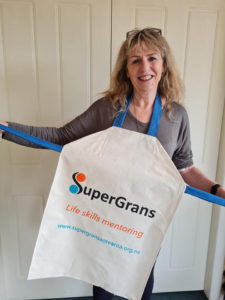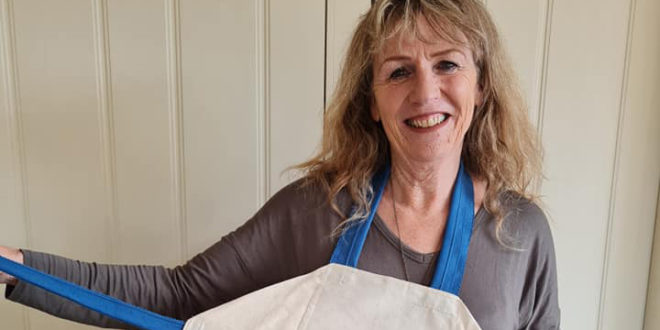If volunteering is on your radar, you may be running up against a common problem; many charitable organisations now require you to have significant experience, and often, an almost professional-level, skill set. In some instances, putting up your hand to volunteer can even feel like going to a job interview. But here’s the secret: there’s a volunteer organisation that requires only one thing of you: that you’re ready and willing to pass on the basis domestic skills you already have!
The organisation is SuperGrans Aotearoa, although, as its Dunedin co-ordinator, Sandy McKay, explains, the name can be misleading.
“We’re called SuperGrans, but our volunteers come from a wide age bracket – and they include men as well as women.”
SuperGrans exists to help pass on to its learners the basic skills that, once upon a time, were learnt in the home.
“In most societies,” says Sandy, “people learn from their elders, but for many reasons, this isn’t happening any more. Many families are separated; with different generations living in different cities or countries. Many parents aren’t available to their children because they’re so stressed, working jobs with no regular hours. A whole generation is in danger of missing out on the basics.”
This is reflected in the general health of our society, says Sandy, citing as an example, the desperation some people feel when takeaway outlets are unable to open during Covid 19 lockdowns.
SuperGrans helps to address the loss of basic skills by running classes, and on occasions, going into individual homes, to teach the likes of cooking, budgeting, sewing, knitting, literacy, basic communication, and English language.
“It’s about helping people to help themselves,” says Sandy.
SuperGrans relies on volunteers to impart this knowledge, and goes out of its way to ensure its mentors aren’t left on their own when it comes to helping.
In Dunedin, most SuperGran teaching takes place at the organisation’s premises, a well kitted-out environment with kitchen and sewing machines. Learning takes place in a class situation where volunteers work alongside each other. There is no pressure to plan or shop for the classes – that’s the co-ordinator’s job.
“I prepare the programme for the sessions, and do all the shopping for them,” says Sandy, who also takes care of advertising the classes. “A cooking class is likely to take around 2 hours, and volunteers for these particular sessions also need to factor in another 2 hours on top of that for preparation and clean-up.”
Sandy describes the volunteer experience as ‘immensely satisfying’. “There’s something about passing on everyday, practical skills that’s very encouraging.”
As an example, Sandy sites an instance of watching a learner who was interested only in fast food, go on to embrace the pleasure of eating simple, cut-up, raw fruit and vegetables.
Although each SuperGran centre has it’s own way of doing things, the general routine is would-be volunteers to attend a short meeting with a co-ordinator, followed by a police check. At the interview, a co-ordinator will learn about a volunteer’s skills and interests, and the number of hours they can contribute per week. It’s then a case of matching the volunteer to a class (or, in some cases, an individual).
Dunedin SuperGrans offers a special opportunity for volunteers to ‘test out the water’ by coming together, informally, with a pop-in Friday session at its premises. This is where learners and established volunteers sit together to chat and craft in an informal, rather than a class, situation.
“We’re building cake-baking into the get together,” too, says Sandy. “If someone wants to help bake, they can – otherwise they can just enjoy eating the results!”
If you feel you would like to join the SuperGrans team, contact them here. You’ll almost certainly already have the very skills they are looking for!









Join the Discussion
Type out your comment here:
You must be logged in to post a comment.